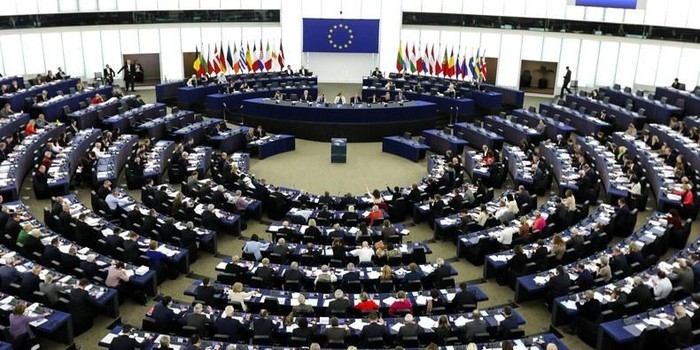(VOVWORLD) - The EU parliamentary elections will begin on Thursday, an important milestone to decide the bloc’s development in the next 5 years and resolve major challenges ranging from migration to protecting the bloc’s prosperity.
 EP election will have strong influence on the EU's future (Photo: Getty) EP election will have strong influence on the EU's future (Photo: Getty)
|
The European Parliament (EP) is one of the EU’s important political entities, elected by EU citizens every 5 years. The EP could be called a “super-national” parliament.
The 9th EP election will be organized in each member country from May 23 to 26. Voters in the EU’s 28 member states will head to the polls to elect 751 members of the EP. After that the new Parliament will elect a President and vote on the EU’s budget for the next 5 years. Voter turnout has fallen year by year since the 1st election in 1979.
Numerous challenges
No previous EP election has taken place at a time of more challenges than this year’s election: Britain’s exit from the EU, growing populism, deep division in the EU’s relations with the US, waves of migration, and terrorism. Never before has populism presented such a challenge to EU unity. In a pre-election poll, nearly half of those polled said they were concerned about the rise in populism. Populist candidates opposed to greater EU integration have conducted strong campaigns. A growing euroskeptic movement intends to break up EU unity. The center-left and center-right groups who have dominated the EU political scene in recent years seem to be losing ground. If the hard-right, populist, and nationalist parties form a coalition within the EP, they could radically change the EU’s law making and general direction.
Appeal for the EU’s future
In the days before the 400 million potential voters are called to the polls, EU leaders have tried to increase voter turnout to dilute the effect of the euroskeptics. The leaders of 21 countries signed a joint statement urging people to go to the polls to support integration and strengthen the EU. The joint statement said that European integration has helped to realize a centuries-old hope for peace in Europe after unbridled nationalism and other extreme ideologies led Europe to the barbarity of two world wars.
EC President Jean-Claude Juncker said the EU is facing unprecedented challenges. The challenges Europeans collectively face are multiplying day by day. For Europe to thrive, EU member states must act together, Junker said. He remains convinced that it is only in unity that they will find the strength needed to preserve the European way of life, sustain the planet, and maintain Europe’s global influence.
German President Frank-Walter Steinmeier affirmed the importance of a strong, united EU. He called on Germans to vote in the EP election to strengthen democratic forces. French President Emmanuel Macron pledged to campaign for the preservation and reform of the EU. The two biggest employers’ organizations in the Netherlands, VNO-NCW and MKB Nederland, launched a campaign to persuade Dutch voters to think and act for a more integrated EU.
The European Parliament, the Ministers’ Council, and the European Commission, are the three most important entities in the EU’s rules-making process.